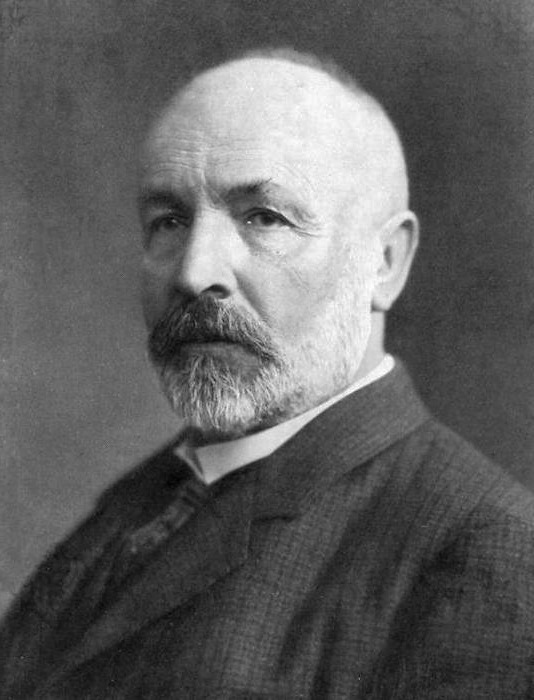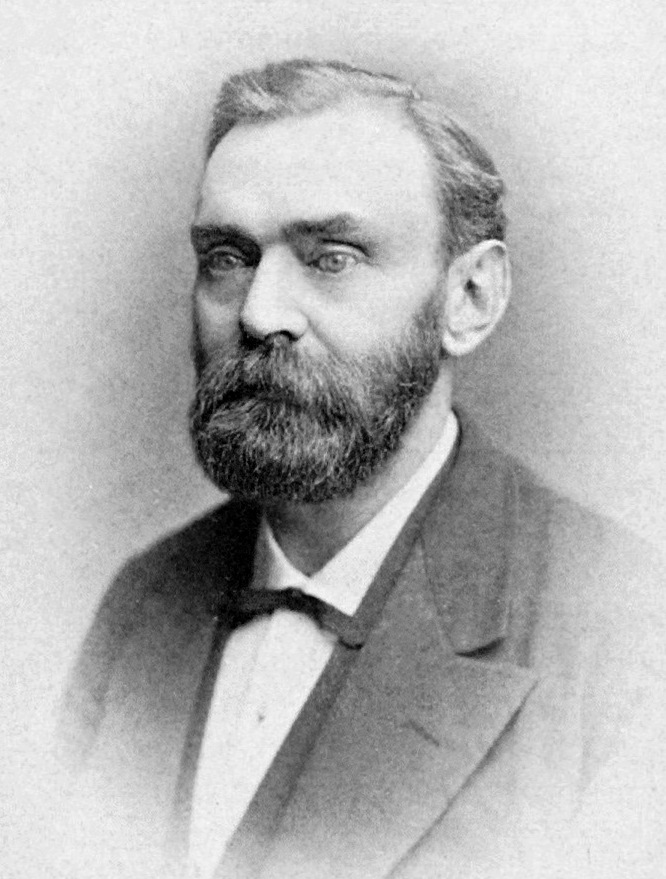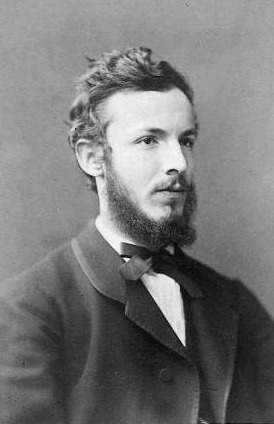|
1845 In Germany
Events from the year 1845 in Germany. Incumbents * King of Bavaria – Ludwig I * King of Hanover – Ernest Augustus * King of Prussia – Frederick William IV * King of Saxony – Frederick Augustus II Events * March 13 – The ''Violin Concerto'' by Felix Mendelssohn premieres in Leipzig, with Ferdinand David as soloist. * October 19 – Richard Wagner's opera '' Tannhäuser'' debuts at the Dresden Royal Court Theater. Date unknown * Friedrich Engels' treatise ''The Condition of the Working Class in England'' is published in Leipzig as ''Die Lage der arbeitenden Klasse in England''. convincing Marx that the working class could be the agent and instrument of the final revolution in history.P. N. Fedoseyev, ''Karl Marx: A Biography'' (Progress Publishers: Moscow, 1973) p. 82. * Heinrich Hoffmann publishes a book (''Lustige Geschichten und drollige Bilder''), introducing his character, Struwwelpeter, in Germany. Births * January 7 – King Ludwig III of Bavaria ... [...More Info...] [...Related Items...] OR: [Wikipedia] [Google] [Baidu] |
King Of Bavaria
The King of Bavaria () was a title held by the hereditary Wittelsbach rulers of Bavaria in the state known as the Kingdom of Bavaria from 1805 until 1918, when the kingdom was abolished. It was the second time Bavaria was a kingdom, almost a thousand years after the short-lived Carolingian kingdom of Bavaria. History Under the terms of the Treaty of Pressburg concluded 26 December 1805 between French Emperor Napoleon and Holy Roman Emperor Francis II, several principalities allied to Napoleon were elevated to kingdoms. One of the staunchest of these had been the prince-elector of Bavaria, Maximilian IV Joseph, and on 1 January 1806, he assumed formally the title King Maximilian I Joseph of Bavaria. He was a member of the Wittelsbach branch Palatinate-Birkenfeld-Zweibrücken. Maximilian's successors resisted German nationalism, and Bavaria became the protector of smaller states whose leaders felt threatened by Prussia or Austria in the German Confederation. Religious ties a ... [...More Info...] [...Related Items...] OR: [Wikipedia] [Google] [Baidu] |
The Condition Of The Working Class In England
''The Condition of the Working Class in England'' () is an 1845 book by the German philosopher Friedrich Engels, a study of the industrial working class in Victorian England. Engels' first book, it was originally written in German; an English translation was published in 1887. It was written during Engels' 1842–44 stay in Salford and Manchester, the city at the heart of the Industrial Revolution, and compiled from Engels' own observations and detailed contemporary reports. After their second meeting in 1844, Karl Marx read and was profoundly impressed by the book. Summary In ''Condition'', Engels argues that the Industrial Revolution made workers worse off. He shows, for example, that in large industrial cities such as Salford, Manchester and Liverpool, mortality from disease (such as smallpox, measles, scarlet fever and whooping cough) was four times that in the surrounding countryside, and mortality from convulsions was ten times as high. The overall death-rate in Mancheste ... [...More Info...] [...Related Items...] OR: [Wikipedia] [Google] [Baidu] |
Years Of The 19th Century In Germany
A year is a unit of time based on how long it takes the Earth to orbit the Sun. In scientific use, the tropical year (approximately 365 solar days, 5 hours, 48 minutes, 45 seconds) and the sidereal year (about 20 minutes longer) are more exact. The modern calendar year, as reckoned according to the Gregorian calendar, approximates the tropical year by using a system of leap years. The term 'year' is also used to indicate other periods of roughly similar duration, such as the lunar year (a roughly 354-day cycle of twelve of the Moon's phasessee lunar calendar), as well as periods loosely associated with the calendar or astronomical year, such as the seasonal year, the fiscal year, the academic year, etc. Due to the Earth's axial tilt, the course of a year sees the passing of the seasons, marked by changes in weather, the hours of daylight, and, consequently, vegetation and soil fertility. In temperate and subpolar regions around the planet, four seasons are generally recogn ... [...More Info...] [...Related Items...] OR: [Wikipedia] [Google] [Baidu] |
Stroud
Stroud is a market town and civil parish in Gloucestershire, England. It is the main town in Stroud District. The town's population was 13,500 in 2021. Sited below the western escarpment of the Cotswold Hills, at the meeting point of the Five Valleys, the town is noted for its steep streets. The Cotswold Area of Outstanding Natural Beauty surrounds the town, and the Cotswold Way path passes by it to the west. It lies south of the city of Gloucester, south-southwest of Cheltenham, west-northwest of Cirencester and north-east of the city of Bristol. London is east-southeast of Stroud and the Welsh border at Whitebrook, Monmouthshire, is to the west. Though officially not part of the town itself, the contiguous civil parishes of Rodborough and Cainscross form part of Stroud's urban area and are generally recognised as suburbs. Stroud acts as a commercial centre for surrounding villages and market towns including Amberley, Bisley, Bussage, Chalford, Dursley, ... [...More Info...] [...Related Items...] OR: [Wikipedia] [Google] [Baidu] |
Friedrich Ludwig Persius
Friedrich Ludwig Persius (15 February 1803 in Potsdam – 12 July 1845 in Potsdam) was a Prussian architect and a student of Karl Friedrich Schinkel. Persius assisted Schinkel with, among others, the building of the Charlottenhof Palace and the Roman Baths in Sanssouci Park in Potsdam. He was also involved with the construction of the Great Fountain, the Church of Peace, and the Orangery and observation tower on the Ruinenberg opposite Sanssouci Palace. Life Persius was born in Potsdam, where he went to public school and grammar school. From 1817 to 1819 he worked with the building inspector Gotthil Hecker; he enrolled as a carpenter. From 1819 he studied to become a surveyor at the Academy of Architecture in Berlin, and took his exam in March 1821. From 1821 he worked as a building planner in Potsdam, working under, among others, Karl Friedrich Schinkel during the building of the castle and church on the grounds of Graf Potocki at Kraków. In 1824 Persius became a mem ... [...More Info...] [...Related Items...] OR: [Wikipedia] [Google] [Baidu] |
August Wilhelm Schlegel
August Wilhelm von Schlegel (Schlegel until 1812; ; ; 8 September 176712 May 1845) was a German Indologist, poet, translator and critic. With his brother Friedrich Schlegel, he was a leading influence within Jena Romanticism. His translations of Shakespeare turned the English dramatist's works into German classics. Schlegel was also the professor of Sanskrit in Continental Europe and produced a translation of the ''Bhagavad Gita''. Childhood and education Schlegel was born in Hanover, where his father, Johann Adolf Schlegel, was a Lutheran pastor. He was educated at the Hanover gymnasium and at the University of Göttingen. Initially studying theology, he received a thorough philological training under Heyne and became an admirer and friend of Bürger, with whom he was engaged in an ardent study of Dante Alighieri, Petrarch and William Shakespeare. Schlegel met with Caroline Schelling and Wilhelm von Humboldt. In 1790 his brother Karl Wilhelm Friedrich Schlegel came to G� ... [...More Info...] [...Related Items...] OR: [Wikipedia] [Google] [Baidu] |
Nobel Prize In Physics
The Nobel Prize in Physics () is an annual award given by the Royal Swedish Academy of Sciences for those who have made the most outstanding contributions to mankind in the field of physics. It is one of the five Nobel Prizes established by the will of Alfred Nobel in 1895 and awarded since 1901, the others being the Nobel Prize in Chemistry, Nobel Prize in Literature, Nobel Peace Prize, and Nobel Prize in Physiology or Medicine. Physics is traditionally the first award presented in the Nobel Prize ceremony. The prize consists of a medal along with a diploma and a certificate for the monetary award. The front side of the medal displays the same profile of Alfred Nobel depicted on the medals for Physics, Chemistry, and Literature. The first Nobel Prize in Physics was awarded to German physicist Wilhelm Röntgen in recognition of the extraordinary services he rendered by the discovery of X-rays. This award is administered by the Nobel Foundation and is widely regarded as the ... [...More Info...] [...Related Items...] OR: [Wikipedia] [Google] [Baidu] |
Physicist
A physicist is a scientist who specializes in the field of physics, which encompasses the interactions of matter and energy at all length and time scales in the physical universe. Physicists generally are interested in the root or ultimate causes of Phenomenon, phenomena, and usually frame their understanding in mathematical terms. They work across a wide range of Physics#Research fields, research fields, spanning all length scales: from atom, sub-atomic and particle physics, through biological physics, to physical cosmology, cosmological length scales encompassing the universe as a whole. The field generally includes two types of physicists: Experimental physics, experimental physicists who specialize in the observation of natural phenomena and the development and analysis of experiments, and Theoretical physics, theoretical physicists who specialize in mathematical modeling of physical systems to rationalize, explain and predict natural phenomena. Physicists can apply their k ... [...More Info...] [...Related Items...] OR: [Wikipedia] [Google] [Baidu] |
Wilhelm Röntgen
Wilhelm Conrad Röntgen (; 27 March 1845 – 10 February 1923), sometimes Transliteration, transliterated as Roentgen ( ), was a German physicist who produced and detected electromagnetic radiation in a wavelength range known as X-rays. As a result of this discovery, he became the first recipient of the Nobel Prize in Physics in 1901.Novelize, Robert. ''Squire's Fundamentals of Radiology''. Harvard University Press. 5th ed. 1997. p. 1. Biographical history Education Röntgen was born in Lennep on 27 March 1845 to Friedrich Conrad Röntgen, a German merchant and cloth manufacturer, and Charlotte Constanze Frowein. When he was aged three, his family moved to the Netherlands, where his mother's family lived, rendering him Statelessness, stateless. He attended high school at Utrecht Technical School in Utrecht, Netherlands. He followed courses at the Technical School for almost two years. In 1865, he was unfairly expelled from high school when one of his teachers intercepted a ... [...More Info...] [...Related Items...] OR: [Wikipedia] [Google] [Baidu] |
Georg Cantor
Georg Ferdinand Ludwig Philipp Cantor ( ; ; – 6 January 1918) was a mathematician who played a pivotal role in the creation of set theory, which has become a foundations of mathematics, fundamental theory in mathematics. Cantor established the importance of one-to-one correspondence between the members of two sets, defined infinite set, infinite and well-order, well-ordered sets, and proved that the real numbers are more numerous than the natural numbers. Cantor's method of proof of this theorem implies the existence of an infinity of infinities. He defined the cardinal number, cardinal and ordinal number, ordinal numbers and their arithmetic. Cantor's work is of great philosophical interest, a fact he was well aware of. Originally, Cantor's theory of transfinite numbers was regarded as counter-intuitive – even shocking. This caused it to encounter resistance from mathematical contemporaries such as Leopold Kronecker and Henri Poincaré and later from Hermann Wey ... [...More Info...] [...Related Items...] OR: [Wikipedia] [Google] [Baidu] |
Ludwig III Of Bavaria
Ludwig III (Ludwig Luitpold Josef Maria Aloys Alfred; 7 January 1845 – 18 October 1921) was the last King of Bavaria, reigning from 1913 to 1918. Initially, he served in the Bavarian Army, Bavarian military as a lieutenant and went on to hold the rank of Oberleutnant during the Austro-Prussian War. He entered politics at the age of 18 becoming a member of the Landtag of Bavaria, Bavarian parliament and was a keen participant in politics, supporting electoral reforms. Later in life, he served as regent and ''de facto'' head of state from 1912 to 1913, ruling for his cousin, Otto, King of Bavaria, Otto. After the Bavarian parliament passed a law allowing him to do so, Ludwig deposed Otto and assumed the throne for himself. He led Bavaria during World War I. His short reign was seen as championing conservative causes and he was influenced by the Catholic encyclical ''Rerum novarum''. After the German Revolution of 1918–1919, the German Empire was dissolved and the Weimar Repub ... [...More Info...] [...Related Items...] OR: [Wikipedia] [Google] [Baidu] |
Roentgen2
Röntgen or Roentgen may refer to: * Roentgen (unit), unit of measurement for ionizing radiation, named after Wilhelm Röntgen * Wilhelm Röntgen (1845–1923), German physicist, discoverer of X-rays * Abraham Roentgen (1711–1793), German cabinetmaker * David Roentgen (1743–1807), German cabinetmaker, son of Abraham Roentgen * Gerhard Moritz Roentgen (1795–1852), Dutch and German entrepreneur and engineer * Engelbert Röntgen (1829–1897), German-Dutch violinist * Heinrich Röntgen (1787–1813), German explorer * Julius Röntgen (1855–1932), German-Dutch composer of classical music, son of Engelbert Röntgen * Kevin Roentgen Kevin Roentgen (pronounced "rent-gehn") is an American singer, songwriter, record producer and formerly guitarist for the rock band Orson, who is currently based in Nashville, Tennessee. Roentgen is previously known for fronting L.A. rock band ..., musician, singer with American rock band Orson * ''Roentgen'' (album), by Japanese singer Hyde ... [...More Info...] [...Related Items...] OR: [Wikipedia] [Google] [Baidu] |









